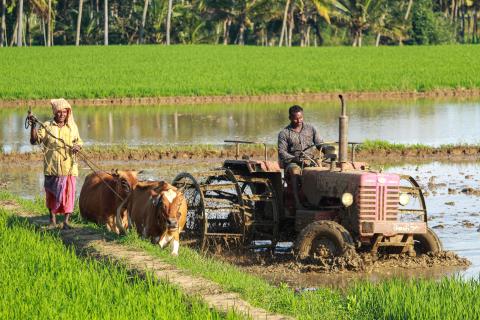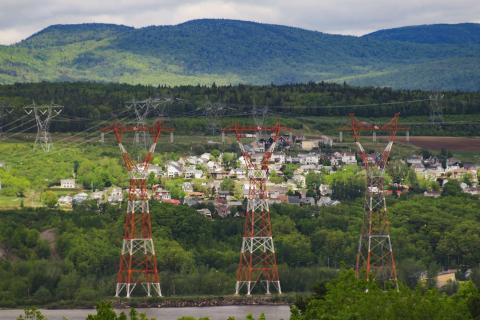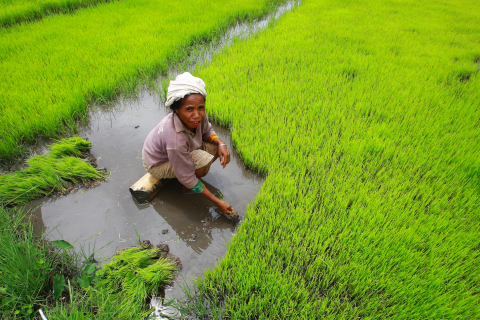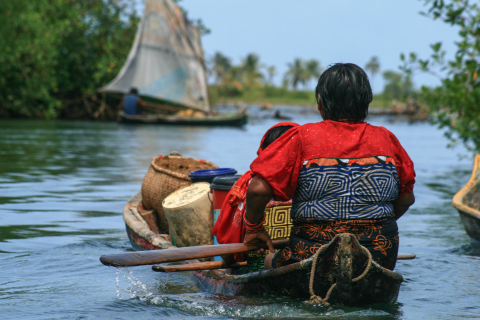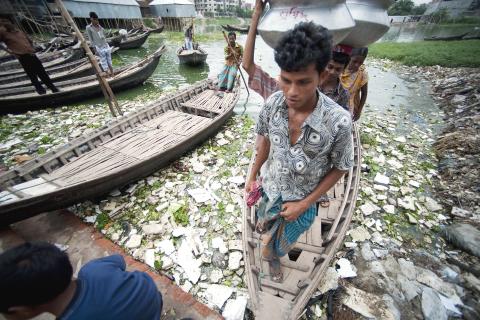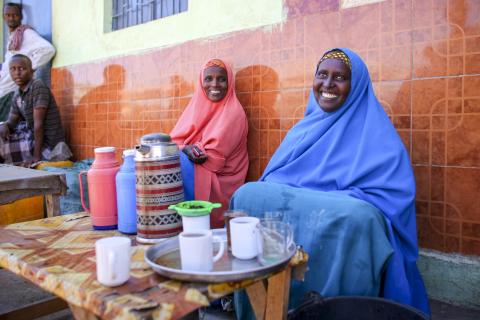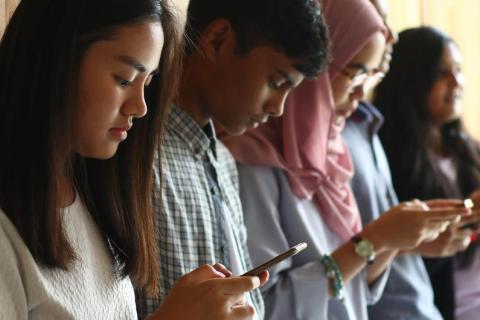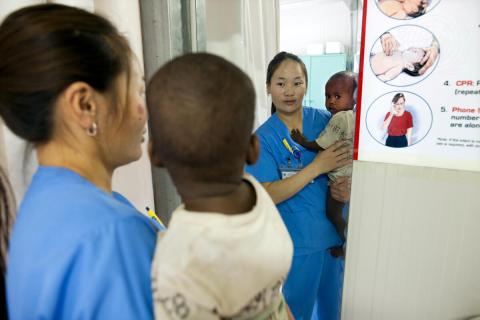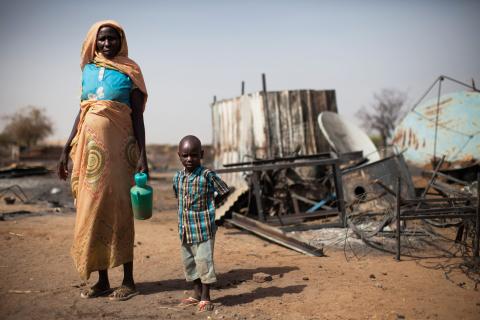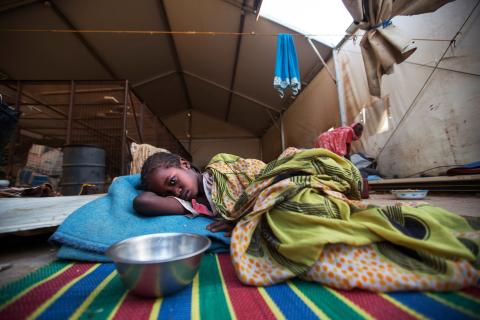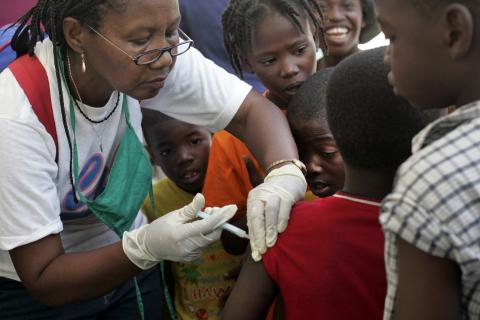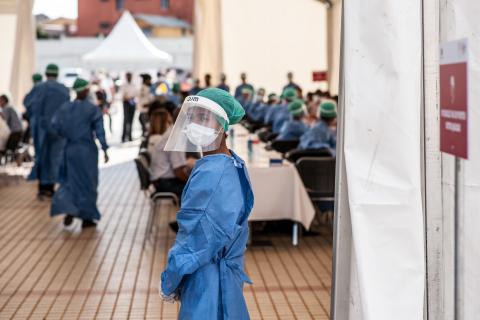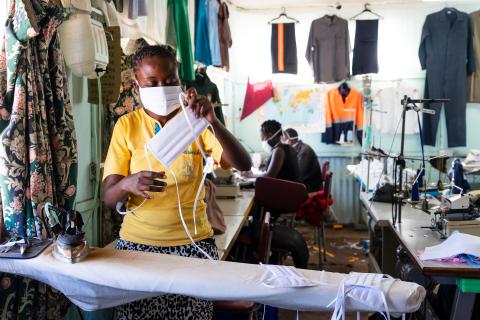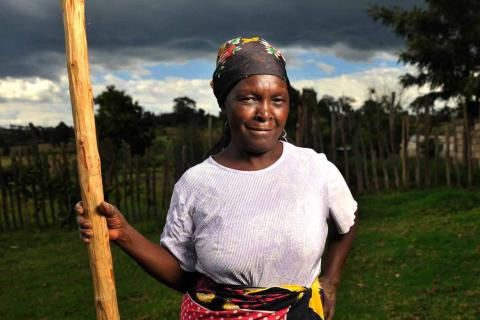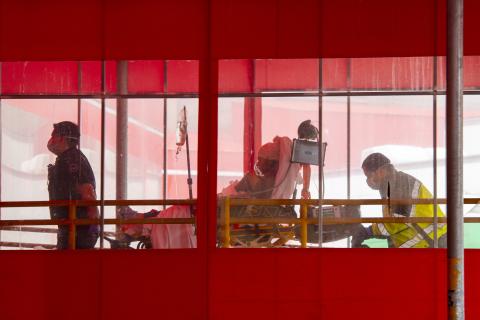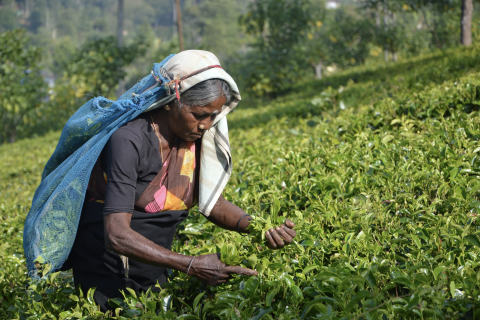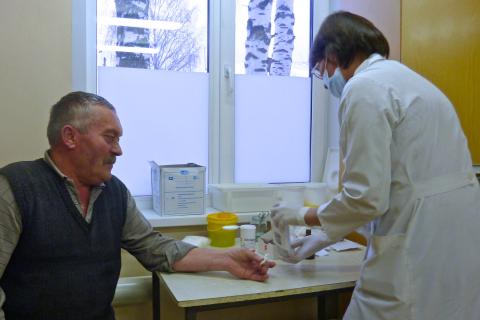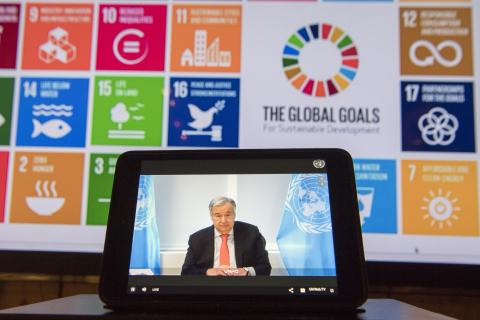UN/DESA Policy Brief #105: Circular agriculture for sustainable rural development
The strengthening of institutions and incentives such as water user associations and secure water and tenure rights, along with enhanced international cooperation, can spur greater application of circular approaches in agriculture.
UN/DESA Policy Brief #104: In situ urbanization key to leaving no one behind
Expanding opportunities in non-farm activities in rural areas is a key for sustainable development without “leaving no one behind”. Where the typical farmers are small landowners, technology alone may not be able to help farmers escape from poverty, and technical advances need to be complemented by a holistic approach.
UN/DESA Policy Brief #103: Transformational partnerships and partnership platforms
Multi-stakeholder collaboration has proven to be critical to tackle the challenges posed by the COVID-19 pandemic and will be essential in the recovery efforts to ‘build back better’ towards more sustainable, resilient and inclusive societies.
UN/DESA Policy Brief #102: Population, food security, nutrition and sustainable development
Despite progress in recent decades, in 2019, almost 690 million people, or 8.9 per cent of the global population, were undernourished. After more than a decade of steady decline, the number of undernourished people has been rising since 2014.
UN/DESA Policy Brief #101: Challenges and Opportunities for Indigenous Peoples’ Sustainability
Indigenous peoples contribute to mitigation and adaptation strategies including successful struggles against deforestation, mineral, oil and gas extraction in their ancestral lands; their fight against further expansion of monocrop plantations; their promotion of sustainable production and consumption systems through traditional knowledge and values of reciprocity with nature.
UN/DESA Policy Brief #95: What triggers economic insecurity and who is most at risk?
A full recovery from the pandemic crisis is not possible without addressing economic security and reducing inequality.
This policy brief highlights inequality in the experience of economic security focusing on the risks to livelihoods and the protections against those risks as laid out by the Universal Declaration of Human Rights.
UN/DESA Policy Brief #94: A changing world of work: implications for the social contract
COVID-19 has had a devastating impact on the world
of work, hitting labour markets that were already weak
and fragile.
UN/DESA Policy Brief #93: Social policy and social protection measures to build Africa better post-COVID-19
This policy brief reviews the socio-economic impacts of the COVID-19 crisis in Africa and presents the continent’s social protection responses.
UN/DESA Policy Brief #92: Leveraging digital technologies for social inclusion
COVID-19 is accelerating the pace of digital transformation. In so doing, it is opening the opportunities for advancing social progress and fostering social inclusion, while simultaneously exacerbating the risk of increased inequalities and exclusion of those who are not digitally connected.
UN/DESA Policy Brief #91: The politics of economic insecurity in the COVID-19 era
The COVID-19 crisis has served as a reminder of the extent of economic insecurity, even in countries and among groups that previously considered themselves secure. This is likely to have profound consequences, threatening countries’ ability to achieve the 2030 Agenda for Sustainable Development and its SDGs.
UN/DESA Policy Brief #90: A new global deal must promote economic security
Fears related to economic insecurity are on the rise. Changes in the world of work, together with globalization and technological breakthroughs, have benefited many people but are also putting many others at disadvantage or at risk. These long-standing trends, which have raised aspirations but also fears, are compounded by evolving threats, including those brought about by climate change and the COVID-19 pandemic.
UN/DESA Policy Brief #86: The long-term impact of COVID-19 on poverty
As developing countries currently face the prospect
of costly debt crises with far-reaching consequences,
global action is urgently needed. The window to mitigate
the disastrous long-term consequences of COVID-19 on
poverty is closing rapidly.
UN/DESA Policy Brief #84: Achieving SDGs in the wake of COVID-19: Scenarios for policymakers
Establishment of robust universal healthcare and social protection systems should be taken as immediate goals, and efforts should be made to build upon the emergency measures taken during the COVID-19 crisis so as to reach these goals.
UN/DESA Policy Brief #81: Impact of COVID-19 on SDG progress: a statistical perspective
COVID-19 is having a devastating impact on all 17 Goals and threatening the achievements already made in
many areas. While the virus has impacted everyone, it is the poorest and most vulnerable who are affected
disproportionally by the pandemic.
UN/DESA Policy Brief #82: COVID-19 and a primer on shock-responsive social protection systems
Risks of implementing more shockresponsive social protection include overwhelming demand, lack of coordination, poor targeting and negative public perception. These can be partially offset by ensuring universal access to programmes. A country’s available fiscal space and level of debt distress are key contextual factors that determine the feasibility of more shock-responsive social protection.
UN/DESA Policy Brief #80: Forests at the heart of a green recovery from the COVID-19 pandemic
This brief highlights how forests and the forestry sector provide essential services and products to support health and livelihoods during times of crisis, how investing in sustainable forest management and forestry jobs offer opportunities for a green recovery, and how healthy forests build resilience against future pandemics. In this context, it proposes policy recommendations to ensure that forest-based solutions be considered for recovery from the COVID-19 pandemic and building back better.
UN/DESA Policy Brief #79: The role of public service and public servants during the COVID-19 pandemic
If not contained, the pandemic will jeopardize meeting the 2030 deadline, by diverting resources from development efforts to crisis response. The public servant sits at the heart of ensuring effective response to the crisis, whether as a frontline worker in healthcare, or in devising strategies and plans to mitigate its impact.
UN/DESA Policy Brief #78: Achieving the SDGs through the COVID-19 response and recovery
The impact of COVID-19 on SDG achievement will only be known with certainty in the months to come, but assessments for 2020 are bleak. If responses are ad hoc, underfunded and without a view to long-term goals, decades of progress stand to be reversed. However, as countries begin to move towards recovery, coherent and comprehensive actions can place the world on a robust trajectory towards achieving sustainable development.
UN/DESA Policy Brief #75: COVID-19: Reaffirming State-People Governance Relationships
This policy brief discusses the role of effective governance, and in particular the role of the relationship between the state and people, in building countries’ resiliency and in responding to and managing nation-wide crises such as the COVID-19 pandemic.
UN/DESA Policy Brief #74: Resilient institutions in times of crisis: transparency, accountability and participation at the national level key to effective response to COVID-19
The coronavirus (COVID-19) pandemic presents a risk to key dimensions of national institutions highlighted in Sustainable Development Goal 16 (in terms of limiting transparency and access to information, eroding safeguards to accountability including integrity violations, fraud and corruption, and restricting participation and engagement).
 Welcome to the United Nations
Welcome to the United Nations
